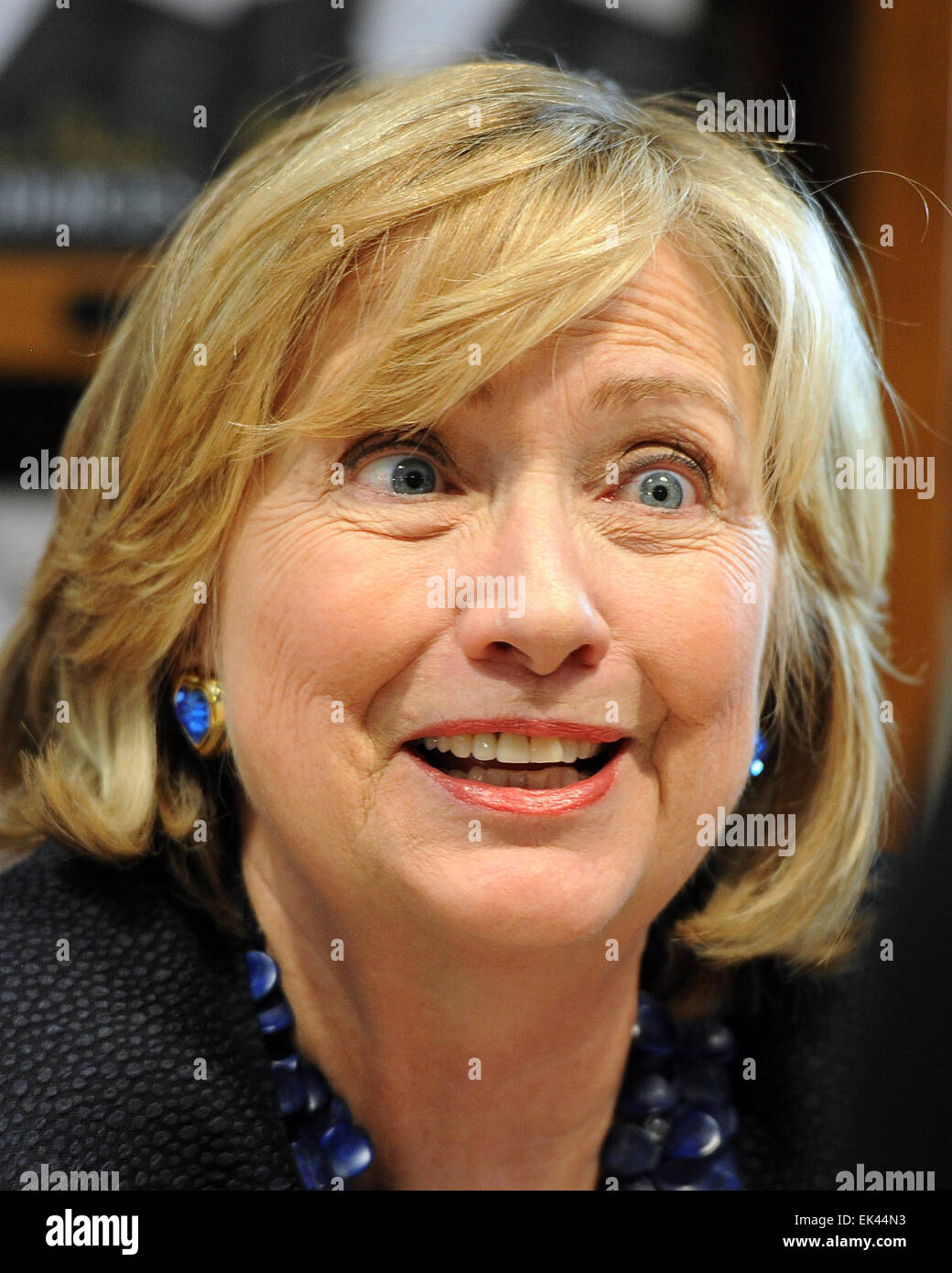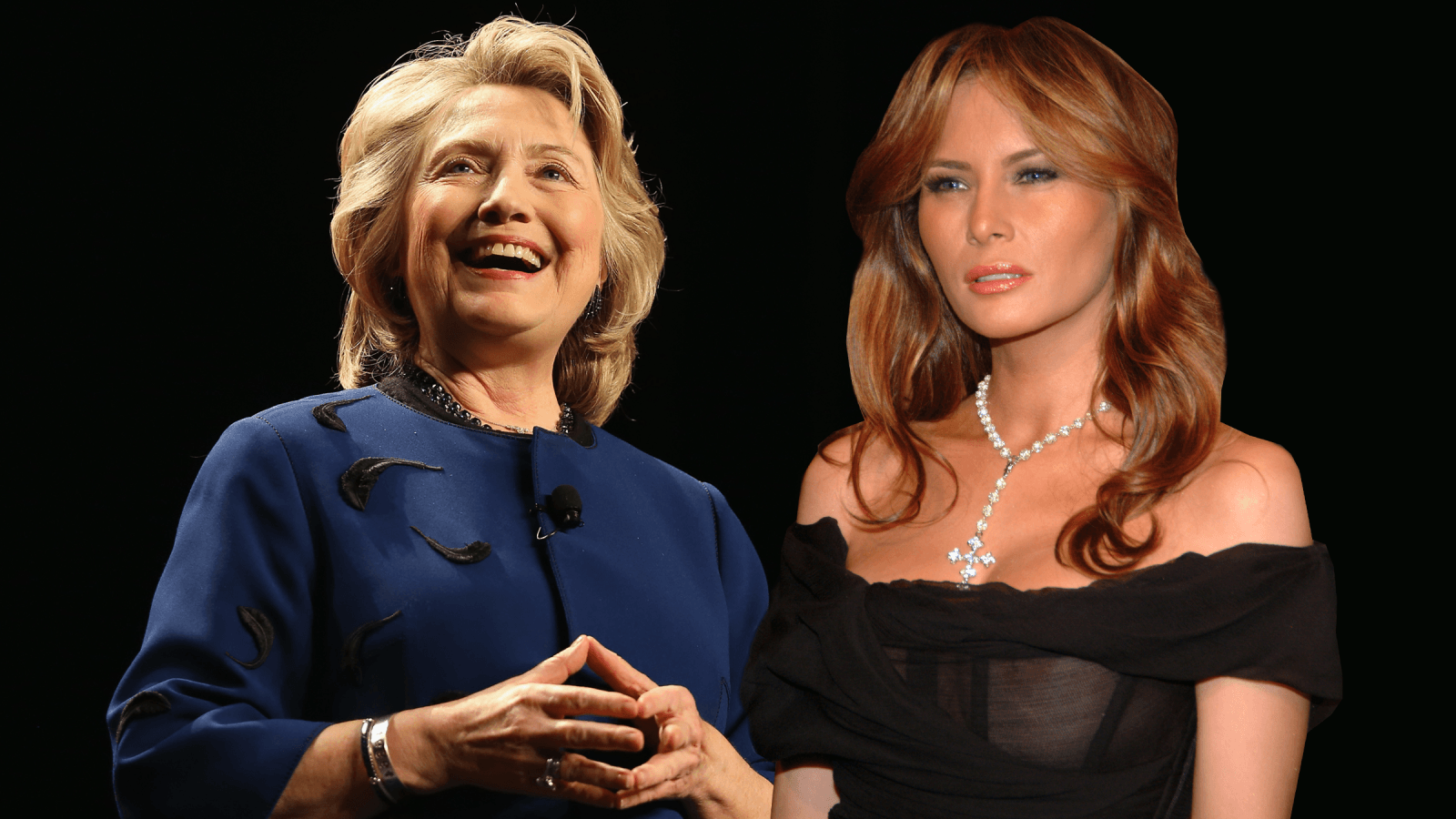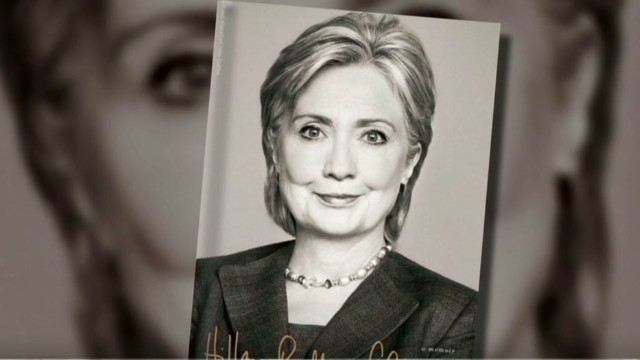The new European data protection law requires us to inform you of the following before you use our website:
After engaging Stephen in an epic name-dropping battle, 'Hard Choices' author Hillary Clinton prompts him to make an important decision.The Comedy Central ap. By Video Journalist Waldo CabreraHillary Clinton's book signing event energizes downtown Huntington. Excited fans lined the streets to a chance to get their.
We use cookies and other technologies to customize your experience, perform analytics and deliver personalized advertising on our sites, apps and newsletters and across the Internet based on your interests. By clicking “I agree” below, you consent to the use by us and our third-party partners of cookies and data gathered from your use of our platforms. See our Privacy Policy and Third Party Partners to learn more about the use of data and your rights. You also agree to our Terms of Service.
The first thing to get out of the way is this: Hillary Clinton is running for President in 2016, even if she says on Page 595 of her new book, Hard Choices, “I haven’t decided yet.”

Without the reality of a coming candidacy, the rest of the book just doesn’t make any sense. This is a campaign book, written by a candidate (via her speechwriters), processed through a political machine, and delivered to the public with the contradictory goals of depicting the author as a decisive leader and not betraying any evidence of leadership that would turn a voter off. Here is how the candidate-without-an-official-campaign describes the choice facing the country in the next presidential election:
Real people who aren’t running for office do not write like this. They do not think like this. They do not try to string together feel-good words in decisive ways that pretend at taking bold stands on the future without actually taking any stand. There are no clear-thinking Americans who do not want “inclusive politics” or “common purpose.” There is no one in public or private life in this country who does not want to “unleash the creativity, potential and opportunity” of the nation. So why write it? Because it is campaign mumbo-jumbo, and campaign mumbo-jumbo works if you want to win elections.
Clinton is only able to say that she not yet decided about running for President because of a legal technicality: She has not yet declared that she is running for President. But in the current environment, and with this book, that should not matter. She is doing exactly what she would do if she knew she was going to declare. It’s as if she left her home, walked down the street to her local bar, took a seat on a stool, handed the barkeep her credit card, and then told him, “I haven’t decided whether or not to order a drink.” She still has time to choose not to order the drink. She may not be a candidate when the Iowa caucuses meet. But that shouldn’t prevent anyone from observing what she is doing in the meantime.

And what she is doing in this book is a thing to behold. Over nearly 600 pages, she gives a grand tour of American foreign policy as seen from the communications operation of the U.S. State Department. There are dozens of pages devoted to singing the praises—and naming the names—of the people she worked with and the things she accomplished. There are hundreds of pages of history, recounting the major events of the last five years in a useful, matter-of-fact voice that would be well-suited to a high school textbook. There are some wonderful admissions and asides, like her habit of digging her fingernails into her hand when she gets sleepy at meetings, or the time when former French President Nicolas Sarkozy declared, while watching a traffic jam of motorcades after a frustrating day of summits in Copenhagen, “I want to die!”
There are also carefully constructed personal recollections of some of the hard choices she made, like her support for the Osama bin Laden raid, with which President Barack Obama agreed, and her support for arming the Syrian rebels, with which Obama disagreed. But as often as not, the hard choices are so polished as to lose their edge. She admits to a shouting match with the former CIA director over whether or not to authorize a particular drone strike, but on the subject of her approach to drone strikes in general she offers only diplo-babble fortune cookies. She agrees with Obama that the strikes raised “profound questions,” and writes that it’s “crucial that these strikes be part of a larger smart power counterterrorism strategy that included diplomacy, law enforcement, sanctions, and other tools.” Got it?
There are other hard choices she clearly runs away from making. After mentioning the controversy over the National Security Agency’s mass collection of domestic phone records without a warrant, she offers a puzzle instead of a position: “Without security, liberty is fragile,” she writes. “Without liberty, security is oppressive. The challenge is finding the proper measure: enough security to safeguard our freedoms, but not so much (or so little) as to endanger them.” Even the NSA will struggle to decode that one.
She devotes an entire chapter to the need to take on climate change, imploring policy makers to save the world in the most vacuous language of policy making, which keeps rearing its head throughout the book: “Building a broad national consensus on the urgency of the climate threat and the imperative of a bold and comprehensive response will not be easy, but it is essential.” But she makes no mention of her position on the Keystone pipeline, which is arguably the most central domestic climate change issue she faced, and which coincidentally divides the Democratic Party.
Perhaps there is no reason to expect more from a politician in mid-stride. Barack Obama’s first book, Dreams of My Father, was widely hailed as a deeply personal literary work in its own right. The book he wrote before his 2008 campaign, The Audacity of Hope, was a far inferior list of policy maxims, Republican bashing and feel-good utopianism. But assuming she continues her campaign, Clinton has a problem to solve that Obama never had before he ran: She must convince voters both within and without the Democratic Party that she is a real person people can believe in, not just a political brand that is repolished and reintroduced to the public at regular intervals under the soft lights of a primetime television interview.
In Hard Choices, Clinton limits her personal admissions to the expected: Praise and pride in her daughter Chelsea, a tribute to her mother Dorothy, who passed in late 2011, and some glimpses of the personal toll of traveling 2,000 hours by plane to 122 countries over four years. Then, in the final pages, there is the hint of more:
Do you want to know what happened next? What they talked about? How things have changed for the most storied political couple in the land? Well, you won’t find it here. The paragraph over, she changes the topic, and moves on, with no indication why the walk might have been important or interesting, or needed to be included in her book.
Clinton has made the hard choice to hide any details of the hardest choice to come in a book she calls Hard Choices. It’s exactly what candidates do—when they are preparing campaigns.
Get our Politics Newsletter. The headlines out of Washington never seem to slow. Subscribe to The D.C. Brief to make sense of what matters most.
Thank you!
For your security, we've sent a confirmation email to the address you entered. Click the link to confirm your subscription and begin receiving our newsletters. If you don't get the confirmation within 10 minutes, please check your spam folder.Hillary Clinton Hard Choices Autographed Book
Hillary Clinton Hard Choices Pdf


Books About Hillary Clinton
25 Pictures Hillary Wishes Would Go Away
EDIT POST